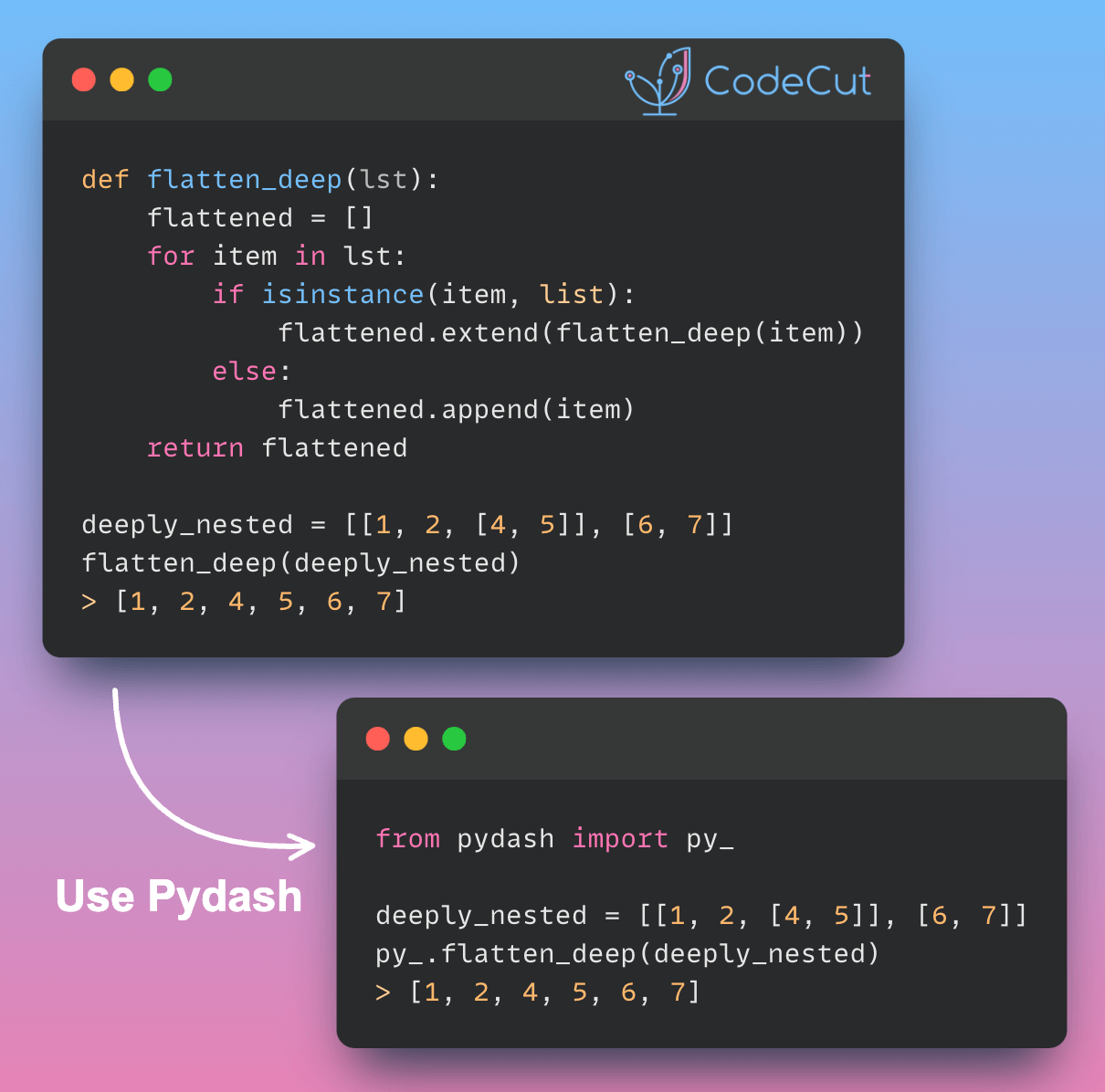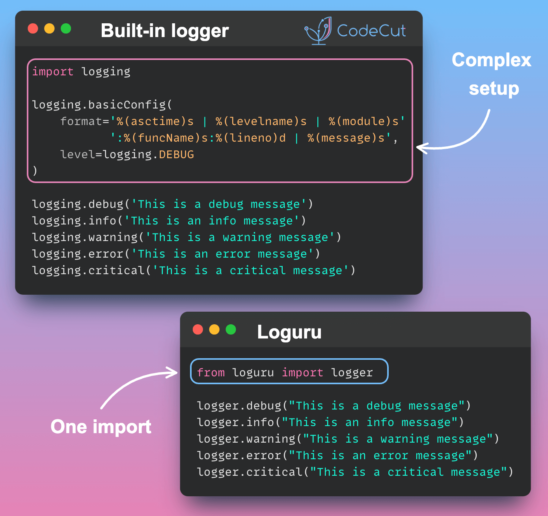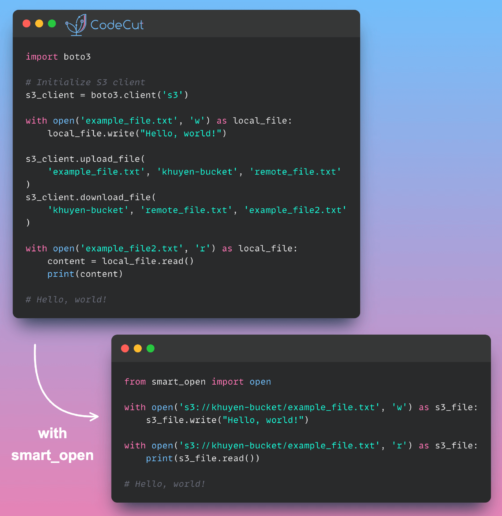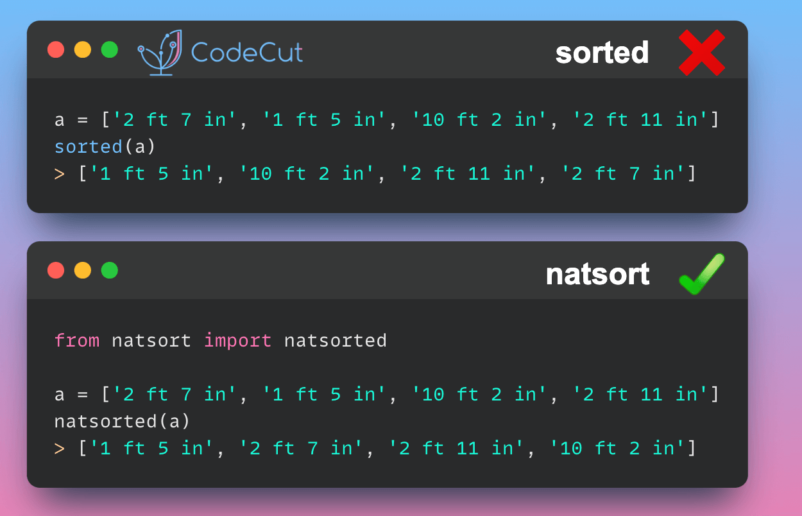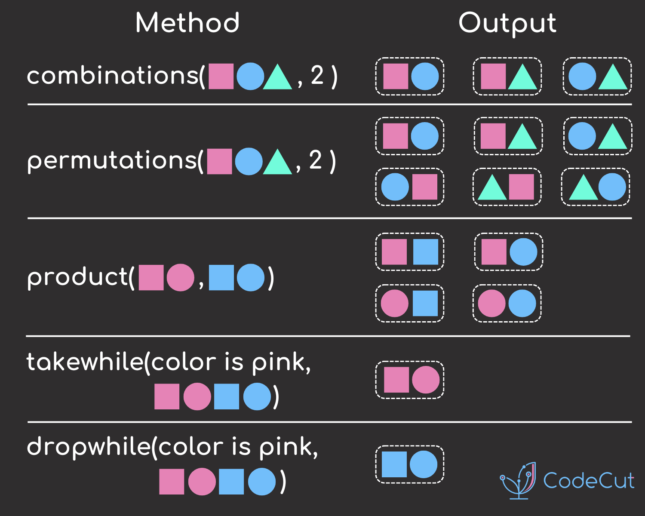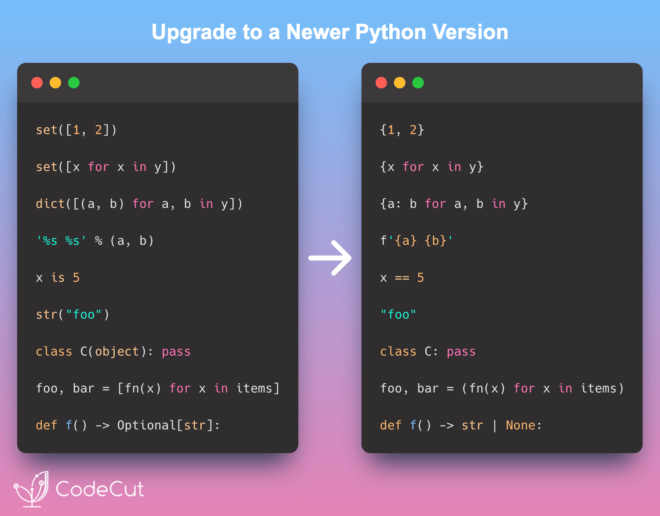Working with complex data structures and performing functional operations in Python often requires repetitive code, reducing readability and slowing development.
pydash solves this by offering utility functions that simplify operations on lists, dictionaries, and other data structures. This enables a more expressive and concise approach to data manipulation.
Working with Lists
pydash provides several useful functions for manipulating lists:
Flattening Nested Lists
Use flatten to flatten a single level of nesting:
from pydash import py_
nested_list = [[1, 2], [3, 4, 5]]
flattened = py_.flatten(nested_list)
print(flattened) # [1, 2, 3, 4, 5]For deeply nested lists, use flatten_deep:
deeply_nested = [[1, 2, [4, 5]], [6, 7]]
fully_flattened = py_.flatten_deep(deeply_nested)
print(fully_flattened) # [1, 2, 4, 5, 6, 7]Chunking Lists
Split a list into smaller groups using chunk:
numbers = [1, 2, 3, 4, 5]
chunked = py_.chunk(numbers, 2)
print(chunked) # [[1, 2], [3, 4], [5]]Working with Dictionaries
pydash offers convenient methods for dictionary manipulation:
Omitting Dictionary Attributes
Remove specific keys from a dictionary using omit:
fruits = {"name": "apple", "color": "red", "taste": "sweet"}
without_name = py_.omit(fruits, "name")
print(without_name) # {'color': 'red', 'taste': 'sweet'}Accessing Nested Dictionary Attributes
Use get to easily access nested dictionary values:
apple = {
"price": {
"in_season": {"store": {"Walmart": [2, 4], "Aldi": 1}},
"out_of_season": {"store": {"Walmart": [3, 5], "Aldi": 2}},
}
}
walmart_price = py_.get(apple, "price.in_season.store.Walmart[0]")
print(walmart_price) # 2Working with Lists of Dictionaries
pydash shines when working with lists of dictionaries:
Finding Item Index
Use find_index to locate items based on a condition:
fruits = [
{"name": "apple", "price": 2},
{"name": "orange", "price": 2},
{"name": "grapes", "price": 4},
]
apple_index = py_.find_index(fruits, lambda fruit: fruit["name"] == "apple")
print(apple_index) # 0Filtering Objects
Filter objects based on matching attributes:
apples = py_.filter_(fruits, {"name": "apple"})
print(apples) # [{'name': 'apple', 'price': 2}]Mapping Nested Values
Extract nested values from a list of dictionaries:
nested_fruits = [
{"apple": {"price": [0, 1], "color": "red"}},
{"apple": {"price": [2, 3], "color": "green"}},
]
second_prices = py_.map_(nested_fruits, "apple.price[1]")
print(second_prices) # [1, 3]Function Utilities
pydash provides utilities for working with functions:
Executing Functions Multiple Times
Use times to run a function a specified number of times:
messages = py_.times(3, lambda i: f"Message {i}")
print(messages) # ['Message 0', 'Message 1', 'Message 2']Method Chaining
pydash allows you to chain multiple operations for more expressive code:
fruits = ["apple", "orange", "grapes"]
result = (
py_.chain(fruits)
.without("grapes")
.reject(lambda fruit: fruit.startswith("a"))
.value()
)
print(result) # ['orange']You can also use custom functions in chains:
def get_price(fruit):
prices = {"apple": 2, "orange": 2, "grapes": 4}
return prices[fruit]
total_price = py_.chain(fruits).map(get_price).sum().value()
print(total_price) # 8